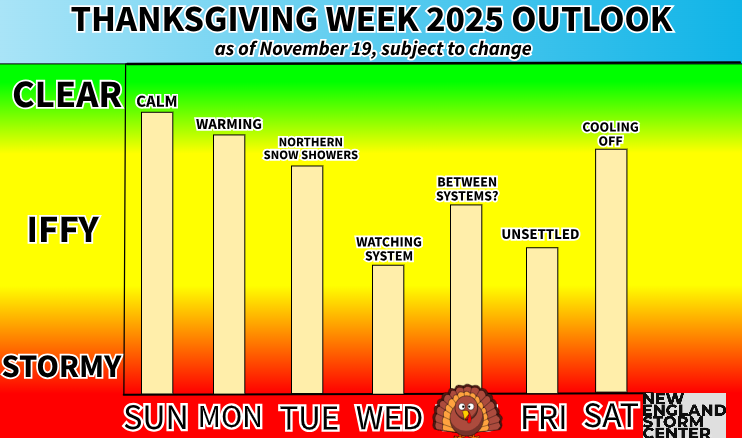Another Round of Thunderstorms Incoming to New England This Afternoon
- Tim Dennis
- Jul 17, 2024
- 3 min read
After a potent line of thunderstorms caused numerous reports of tree damage as well as knocking out power to over 60,000 in New England, a fresh round of storms is expected to break out this afternoon and evening. This round will be coming as a cold front drops into the region, which will bring an end to this prolonged stretch of heat and especially humidity.

Storms will likely begin to fire by mid-afternoon across western New England before pushing into eastern New England by the evening. After the initial line of storms ends in the evening, showers and perhaps rumbles of thunder will continue through the night until the cold front actually crosses the region Thursday morning. The severe threat should be gone by 10pm, however.
HRRR showing potential weather around mid-afternoon (1st image) and this evening (2nd image):
The greatest chance for strong to severe thunderstorms will be across interior portions of southern New England as well as southern Vermont and New Hampshire. These areas have the best chance to see storms fire up during peak afternoon heat and humidity. Storms will begin to weaken as they push east as they did yesterday, but as we saw yesterday, some storms could still hold onto severe levels as they do so.

The greatest threat with these storms will be strong to damaging straight-line winds. Storms will likely come in the form of linear clusters, meaning storms will likely form a broken line parallel to the cold front as they move west to east. This will promote straight-line winds. These storms will primarily be wind events as a high freezing altitude (the freezing level will be around 14,000-15,000 feet), limited instability and very limited mode for rotation will heavily limit the hail and tornado threat.
With storms firing well ahead of the front crossing, there will be a chance for some storm training (when multiple storms move over the same location). Within this hot and humid environment, storms will be able to produce torrential downpours. Should training develop, there could be localized totals of 2-3 inches of rain in places across southern and central New England. This could result in isolated flash flooding issues in places where multiple inches of rain falls.

As for the main ingredients for severe thunderstorms, there will be plenty of moisture in the atmosphere from continued high heat and humidity. Lift will be provided from the incoming cold front. Shear won't be overly strong, but it will be sufficient enough to allow storms to organize and strengthen.
Instability will also be modest, with average CAPE values in the 800-1,500 range (with locally higher values). The highest values will be in southern New England and lowest in Vermont. Lapse rates are not overly impressive overall. All of this should combine to produce some severe storms across the region today.
The cold front will cross New England Wednesday night into Thursday morning. As it does so, it will usher in a much drier air mass with dew points falling into the 50s behind it. This drier air does look to lag behind the front, so areas closer to the coast may not see lower humidity until Thursday afternoon, but it will be approaching. By the evening, dew points will be in the 50s just about region-wide.
HRRR showing dew points at around midday Thursday (1st image) and Thursday evening (2nd image):
Temperatures will also fall behind the front, but will still stay in the 80s, and in many areas, well into the 80s through the weekend. This comes as there's just no really cool air across western Canada to spill into New England as an intense heat wave in the west continues. Temperatures may cool off more heading into early next week.












Comments